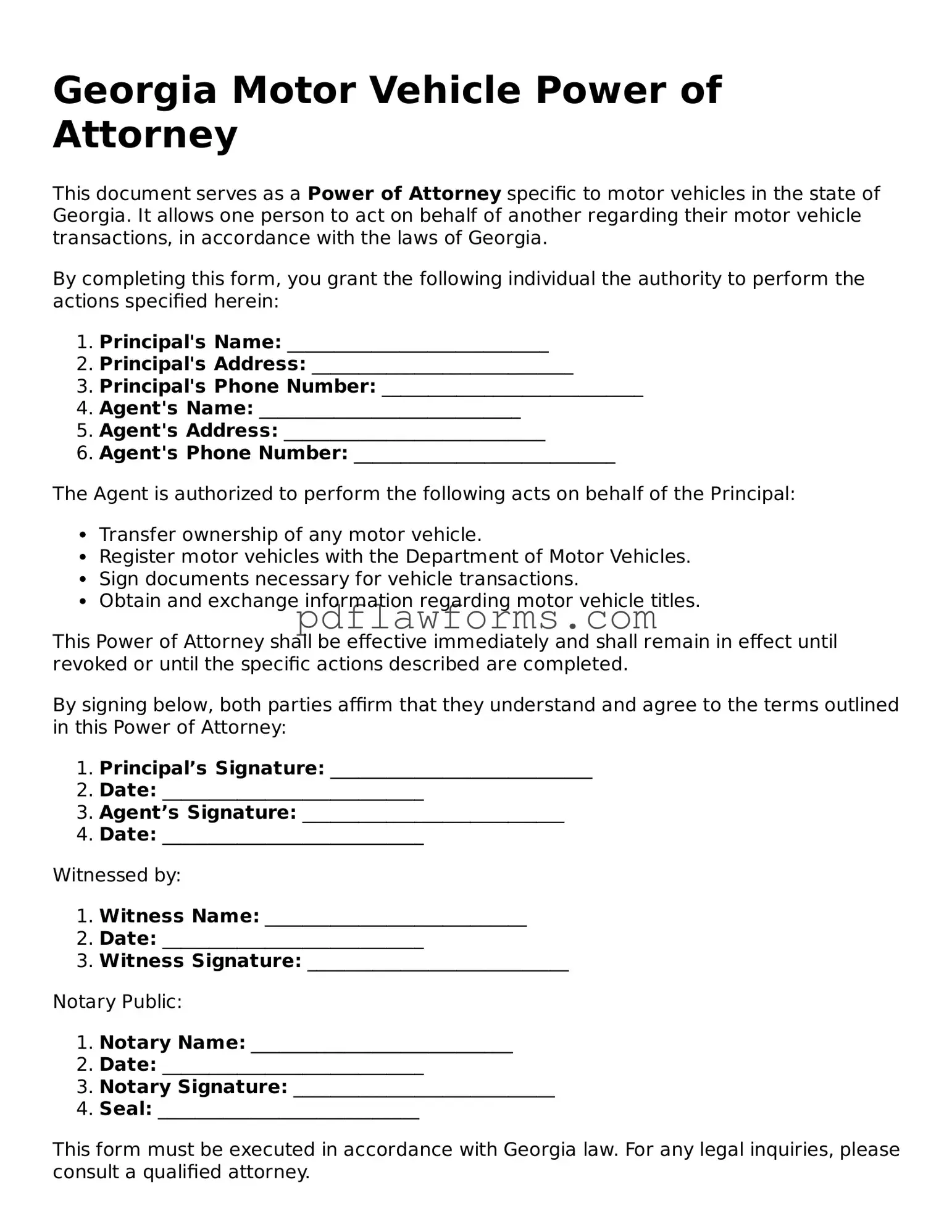Motor Vehicle Power of Attorney Form for the State of Georgia
The Georgia Motor Vehicle Power of Attorney form is a legal document that allows an individual to designate another person to handle specific motor vehicle transactions on their behalf. This can include tasks such as registering a vehicle, transferring ownership, or obtaining title documents. If you need to delegate these responsibilities, consider filling out the form by clicking the button below.
Make My Document Online

Motor Vehicle Power of Attorney Form for the State of Georgia
Make My Document Online
You’re halfway through — finish the form
Edit and complete Motor Vehicle Power of Attorney online, then download your file.
Make My Document Online
or
⇩ Motor Vehicle Power of Attorney PDF
